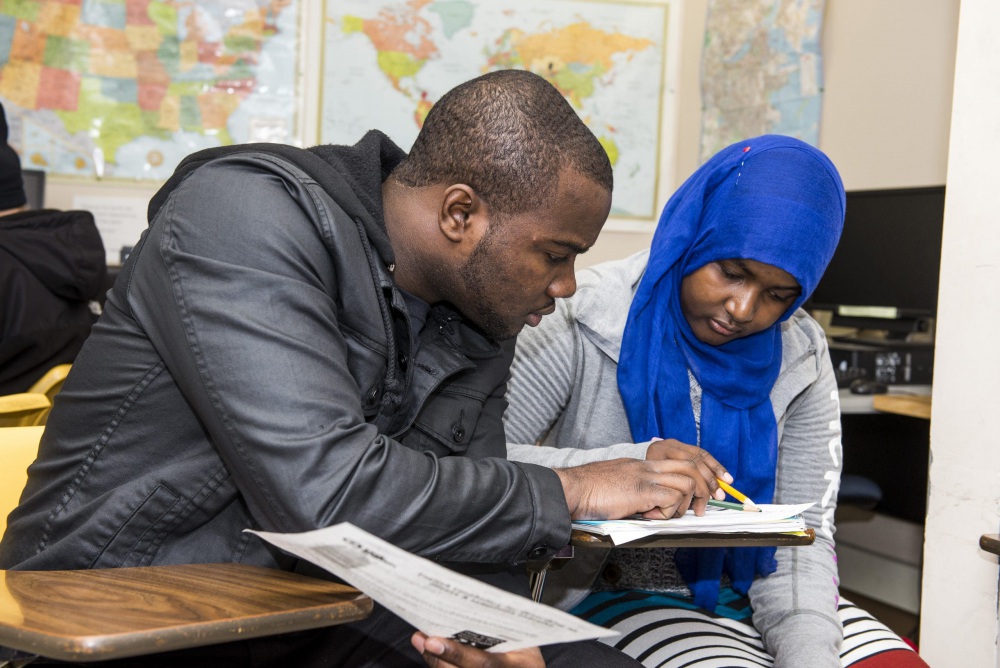

Impact Investments
A panel of cross-sector leaders convened last month at The Exchange 2021: The Systems Summit to discuss economic recovery. The session, titled “Recovery to Renewal: Capturing the Trillion Dollar Opportunity,” featured Tracy Palandjian, CEO and Co-Founder of Social Finance; Gary Cunningham, President and CEO of Prosperity Now; Becky Payne, Executive Vice President of the Rippel Foundation; and Madge Thomas, Vice President of Corporate Social Responsibility and Head of the American Express Foundation. Monte Roulier, President and Cofounder of the Community Initiatives Network moderated.
Watch a recording of the session here. Below, explore five key takeaways from the event.
1. Our current economic system is broken.
Each of the panelists underscored the idea that America’s economy isn’t working for the majority of Americans. Economic mobility has become a rarity. Shareholder capitalism, the form of capitalism at the forefront of our economy, has excluded BIPOC communities. And our systems for financing education and training have become massively inequitable, meaning all Americans who wish to upskill must bear an undue risk of failure. As Payne explained, “All of the system’s failures that we witnessed during the pandemic—housing, food, and economic insecurity—are not about Covid-19.” Instead, they reflect a deeper problem: the failure of our current economic system.
2. The time to fix the system is now.
The pandemic revealed our economic system’s failures, but it has also given us an opportunity to fix them.
“We’ve got this exciting and mammoth funding,” Palandjian said, referencing the American Rescue Plan and the infrastructure bill. “At the same time, we’re experiencing a collective thirst to reimagine capitalism and build new cross-sector solutions.” The result, she said, is the “once-in-a-generation” opportunity to rethink how capital is being allocated and reimagine the role of capital markets in serving society—two possibilities that drive our work here at Social Finance.
One exciting change that’s accelerated throughout the pandemic? The emergence of the impact investor, an investor “who cares not only about returns but also how investments can produce social impact,” Palandjian said.
3. We are all connected, so renewal requires an interconnected approach.
Panelists also stressed the idea that economic inequality is not just a problem for the low-wage earners. It affects the whole system, and to truly fix inequality, change must cut across sectors and connect communities.
Palandjian highlighted some of the innovative tools we’re using at Social Finance, such as Pay It Forward Funds and Career Impact Bonds, that move capital through cross-sector partnerships to produce measurable outcomes.
Payne agreed that cross-sector partnerships are important, and emphasized that such partnerships only succeed when community input is placed at their center. “Not every community wants a fast, futuristic solution,” she stressed. “They need affordable housing, reliable transportation, reinvigorated arts, and public spaces to come together. These things require investment. In turn, they will foster the collaboration we’ve been talking about.”
4. To embrace renewal, we must rethink risk.
Many credit card companies are opposed to risk. But Thomas explained that the strategy the American Express Foundation uses to encourage change innovation “involves being riskier in our approach.” She stressed that capital holders must embrace new risk strategies to foster true innovation and change: “It’s on all of us to move the needle on risk appetite.”
Palandjian agreed that a reconsideration of risk is key to reshaping our financial system for the better. For her, re-evaluating risk as it relates to education—specifically, interrogating who should take on the risk of educating American workers—is necessary to address the challenges of the current moment.
Cunningham pointed to the importance of incentivizing tax structures that minimize inequality, another risk-shifting maneuver with enormous potential.
5. Change must happen at a systemic level.
Finally, in a nod to the name of the event, the Systems Summit, all panelists agreed that change must happen at the systems level, rather than the individual level.
For Cunningham, the system that needs mending first is the “social contract of working hard, doing right, investing in yourself, and making it up the ladder.” Only when that system is addressed, will our economy include everyone, he said. Cunningham acknowledged that this fix will not be easy, but he’s hopeful that the potential of our current moment will spur a true solution.
“We’ve overcome so much in our history, and to change these systems, we have to overcome more. I think we’re up to the challenge.”
Read our American Rescue Plan Memo to see Social Finance’s recommendations for distributing funds in a way that maximizes community impact →
Related Insight

Harvard Kennedy School: Innovations in Government Case Study on Massachusetts Pathways to Economic Advancement
This report, written by Jeanne Batalova, a senior policy analyst at the Migration Policy Institute, provides an expert analysis of the Massachusetts Pathways to Economic Advancement project, which was recognized in the 2020 Innovations in…

Learning to Do Better: Building the Evidence Base on Career Impact Bonds and Economic Mobility
With funding from the Strada Education Network, Social Finance has launched a partnership with MDRC to implement a robust learning agenda to assess the implementation and outcomes of the Career Impact Bonds funded through the…

Leader to Leader: How Public, Private, and Nonprofit Leaders can Amplify their Impact by Adopting Cross-Sector Tools
How can cross-sector leaders confront economic and social challenges through knowledge and skill sharing?